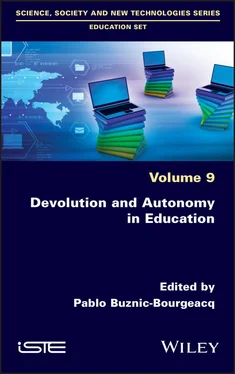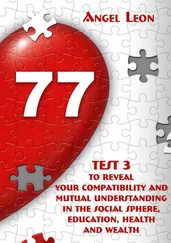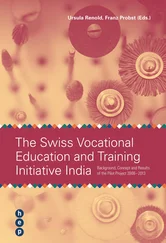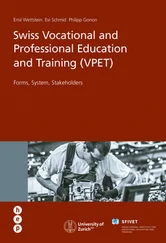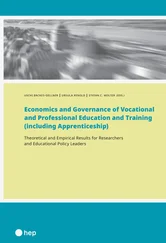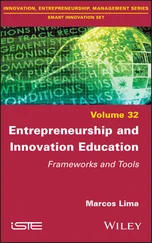At the level of didactic engineering, the theory of situation’s project is to allow the empirical confrontation of theory (in particular, in terms of fundamental situations) with contingency and, in particular, to verify that the situational knowledge invested by students in adidactic situation constructed by engineering is appropriate to the institutional knowledge determined in advance.
Empirically, it is not simple: it is not enough to ask a teacher to respect a scenario, and this is how the incredible adventure of COREM (Salin and Greslard 1998) was born from the idea that it was necessary to implement quite exceptional experimental conditions, in an entire school (kindergarten– elementary), so that original situations could be experimented on. Part of the teacher’s work in this framework is, in particular, that of participating in the process of devolving an adidactic situation, that is, of committing the pupil to investing in a milieu in order to realize an issue that has been defined in advance. In these experimental conditions, the devolution process depends on the quality of the situations constructed by the engineering team, which must guarantee that everything has been done to ensure that the student can invest the proposed milieu and issue, and that the situational knowledge involved in the student–milieu interaction is an appropriate component of the knowledge to be taught.
Didactic engineering plays, for theory of situations, the role of phenomenotechnics (Bachelard 1934): it is not a goal in itself. Contrary to what is sometimes considered in a popularized version, it is not a “constructivist” theory, especially in a radical version of constructivism, of which Brousseau (2003, p. 5) clearly writes that it is condemned as a didactic model. Brousseau still considers both learning by adaptation (from situational knowledge to institutional knowledge) and learning by acculturation (from institutional knowledge to situational knowledge) (Bessot 2011).
In ordinary (non-experimental) situations, regardless of the teacher’s pedagogical orientation, teaching is more or less an adaptation/acculturation continuum. The most “active” lessons are aimed in fine at the acquisition of institutional knowledge, the most “formal” lessons are also aimed in fine at the implementation of situational knowledge in situations. In the rest of this text, by focusing on ordinary teaching situations, I do not prejudge the pedagogical considerations that lead the teacher to construct them. In any case, the processes of devolution (which we are particularly interested in here) and institutionalization are at play.
When ordinary teaching situations are observed, the conditions concerning the situations cannot be fully met, regardless of the professionalism, experience and commitment of the teacher and regardless of the quality of the resources on which he or she relies. Under ordinary conditions, the devolution process becomes more complicated because it is necessary not only to maintain the commitment of the students in a situation entirely determined in advance but also to regulate or even modify the situation itself so that it continues to correspond to the didactic project of the teacher. This raises the question of the criteria for such a “correspondence”.
The teacher’s role in the devolution process
The school institution defines the framework of the teacher’s action, according to modalities that differ from country to country. In France, these modalities are largely defined by official instructions, particularly school curricula, whereas textbooks are published freely by private publishers (Bruillard 2005). The official instructions give the teacher a list of knowledge to teach, sometimes accompanied by complements (curriculum guides) suggesting ways of teaching. In all cases, from such a list and even with some additional suggestions, the teacher is led to choose what, in daily situations, will be proposed to the student.
The teacher starts from the knowledge and must somehow allow the student to acquire situational knowledge that is appropriate to them (institutional knowledge → situational knowledge). The choices he or she makes, even before the meeting with the students, are part of the devolution process that affects both the teacher and the students. Contrary to the popularized form that the term “devolution” sometimes takes on, it is not a kind of tool at the teacher’s full disposal: the teacher too is subject to the vagaries of the choices imposed on him or her by the characteristics of the situations that he or she sets up in a more or less deliberate manner. In particular, even if we can broadly consider the teacher to be rather free in his (oral) speech, most of the time he or she cannot easily change in the course of the action neither the writings he or she has prepared beforehand (e.g. photocopies) nor the material he or she has prepared to put the students in situations, and even less his or her own didactic situational knowledge related to the knowledge to be taught. His leeway is thus very limited.
In the teacher’s action, what is usually called the “instruction” (the initial guidelines of the task pupils have to achieve) is only one of the tools that influence the process of devolution in a learning situation, a somewhat excessive power to act is granted to those instructions, as if the teacher could entirely constrain the action of the students. However, any human action, even if it results from a prescription, is always the object of an interpretation that transforms the prescription, an interpretation that, even if it actually causes the reality to deviate from the prescribed, is the mark of the subject’s investment in the situation (Clot 1999). Moreover, in the school context, especially in elementary school, the implementation of teaching situations involves objects, and, in particular, material objects, objects of the world that “evoke the uses and affects that [the pupil] already knows” (Laparra and Margolinas 2016, p. 176). The teacher’s efforts to create a situation in which the student encounters situational knowledge that is appropriate to institutional knowledge can be nullified by the students’ previous uses (academic or otherwise) of objects that the teacher has, sometimes by chance, used (e.g. see, in particular, Chapters 1and 2).
The student’s role in the devolution process
“The student is well aware that the problem [situation] was chosen to help him/her acquire new knowledge” (Brousseau 1998, p. 59); however, the student does not know the teacher’s project, and, especially in elementary school, does not always know how to clearly identify the school subject concerned (Reuter 2007). Moreover, the student cannot know in advance the knowledge in question, which is one of the paradoxes of devolution:
The teacher has a social obligation to teach everything necessary about knowledge. The student – especially when he or she is failing – asks him or her to do so. So the more the teacher gives in to these requests and reveals what he or she wants, the more precisely he or she tells the student what he or she needs to do, the more likely the student is to lose his or her chances of obtaining and objectively observing the learning that he or she is actually trying to achieve (Brousseau 2003, p. 9).
One of student’s first roles in the devolution process is therefore to accept trusting the teacher, who is responsible for the situations he or she asks the student to invest.
The student is confronted with a milieu that he explores according to his previous situational knowledge. This interaction with the environment mobilizes or provokes the construction of situational knowledge whose nature depends on the actual situation. The student’s point of view is the opposite of the teacher’s: he or she must arrive at the institutional knowledge the teacher started with to create his or her teaching project, by constructing situational knowledge in a situation. However, numerous works (see, for example, Margolinas 2004; Coulange 2012; Clivaz 2014) show that very often the situations set up by the teacher lead some students:
Читать дальше
